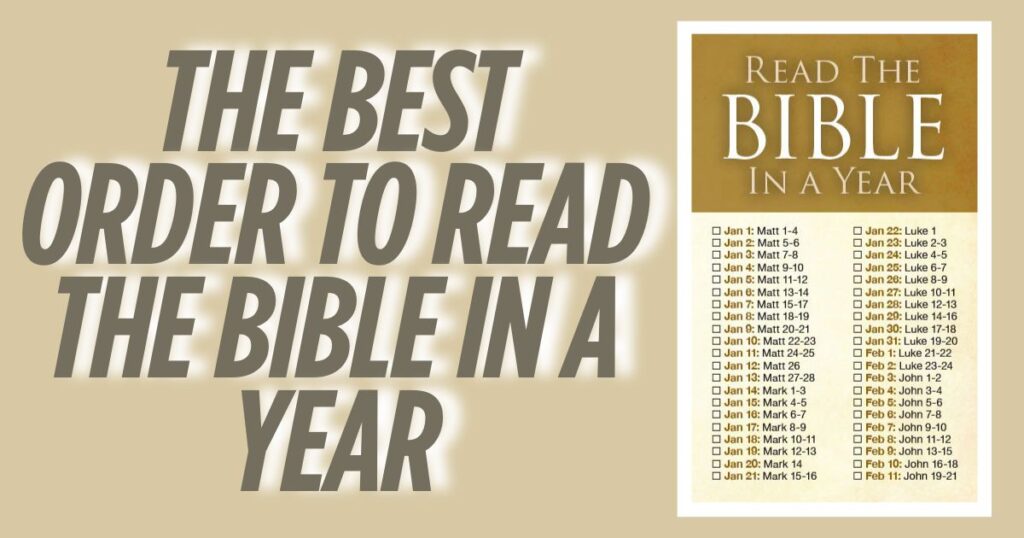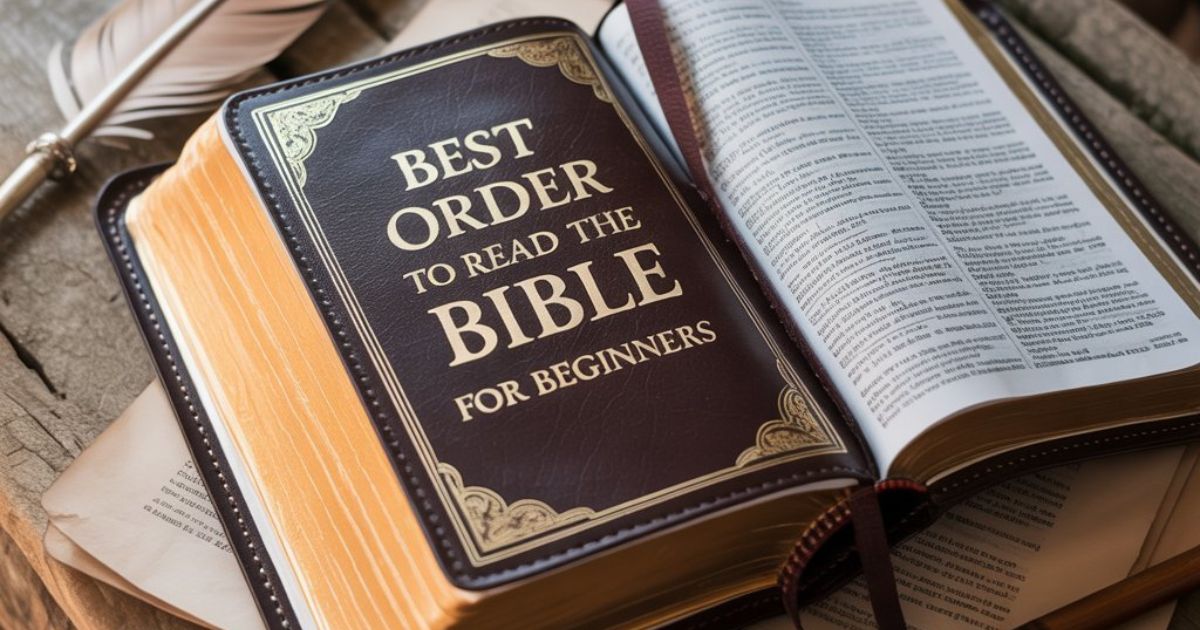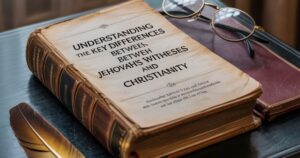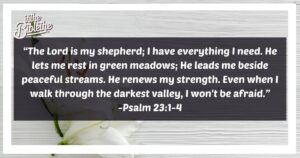Starting your Bible reading journey can feel overwhelming when you’re staring at over 1,000 pages of ancient text. Many Americans own a Bible, but statistics show that less than 20% actually read it regularly. The good news? You don’t need a theology degree to understand God’s Word.
This comprehensive guide will show you the best order to read the Bible for beginners, helping you build a strong Christian faith foundation without getting lost in complex genealogies or ancient laws. Whether you’re seeking spiritual growth or simply curious about Christianity’s core teachings, we’ll map out a clear path forward.
The key isn’t perfection—it’s starting somewhere and developing a daily scripture reading habit that transforms your understanding of Jesus Christ and His message. Let’s dive into the most effective approaches that have helped millions of first-time readers successfully navigate their Bible reading plan for beginners.
Should You Read the Bible in Order?
Why Chronological Order Isn’t Always Best for Newcomers
Many first-time readers assume they should start with Genesis and work their way through to Revelation. However, this approach often leads to what Bible teachers call the “Genesis trap.” After getting through the creation story, readers quickly encounter complex genealogies, ancient laws, and cultural practices that can feel irrelevant to modern life. Studies show that 70% of people who start reading the Bible from the beginning abandon their reading journey before reaching the New Testament.
The Old Testament contains incredible wisdom and biblical history, but it requires significant cultural context to fully appreciate. Books like Leviticus and Numbers focus heavily on ceremonial laws and priestly duties that were specific to ancient Israel. Without understanding why these laws existed and how they point to Jesus’ teachings, beginners often feel disconnected from the text.
Chronological Bible reading tips suggest that understanding comes more naturally when you grasp the bigger picture first. Think of it like watching a movie sequel before the original—you might understand the plot, but you’ll miss the deeper connections and character development that make the story meaningful.
Benefits of Reading the Bible in Order
Reading the Bible chronologically does offer significant advantages for spiritual growth once you have a foundation. You’ll witness how God’s plan unfolds across centuries, seeing prophecies fulfilled and themes developed. The progression from promise to fulfillment becomes clear when you understand how Old Testament prophets pointed toward the coming Messiah.
Chronological reading also helps you appreciate the historical context of biblical events. You’ll understand why certain books were written, who the original audience was, and how different authors addressed specific challenges facing early Christians. This approach particularly benefits those who enjoy studying biblical history and want to trace theological themes across different time periods.
Many mature believers find that reading chronologically deepens their appreciation for Scripture’s unity. They see how the teachings of Jesus fulfill Old Testament prophecies and how the early Christian church built upon Jewish foundations. However, this approach works best when you already understand core Christian beliefs and can connect historical events to spiritual truths.
Alternative Approaches That Work Better for Beginners
Topic-based reading offers an excellent alternative for first-time readers. Instead of following chronological order, you can explore themes like love, forgiveness, hope, or Jesus’ ministry across different books. This approach helps you see how consistent biblical themes appear throughout Scripture, from Genesis to Revelation.
The “biblical literacy” approach focuses on understanding Christian faith fundamentals before diving into historical details. This method prioritizes New Testament books that explain salvation, Jesus Christ’s identity, and practical Christian living. Once you grasp these core concepts, Old Testament stories become more meaningful and relevant.
Another effective strategy involves starting with the most accessible books regardless of their biblical order. Psalms offers beautiful prayers and worship songs, Proverbs provides practical wisdom for daily life, and the Gospel of John presents clear explanations of Jesus’ teachings. This approach builds confidence and enthusiasm while establishing a solid Bible reading spiritual growth foundation.
What Is the Best Order to Read the Bible in a Year?

Popular One-Year Bible Reading Plans for Beginners
The chronological Bible reading plan arranges biblical books according to when events likely occurred rather than their traditional order. This approach helps you understand biblical history as a flowing narrative rather than disconnected stories. You’ll read about Abraham’s calling, then move to Job’s trials, followed by Moses’ leadership—creating a timeline that makes historical sense.
Bible-in-a-Year plans divide Scripture into manageable daily portions, typically requiring 15-20 minutes of reading per day. These plans usually alternate between Old Testament and New Testament passages, ensuring you experience both historical narratives and Jesus’ teachings throughout the year. Many study Bible for first time readers appreciate this balanced approach because it prevents getting bogged down in challenging sections.
Thematic yearly plans organize readings around specific topics or seasons. For example, you might focus on Christian faith foundation verses during January, explore Jesus’ ministry during Easter season, and study epistles for beginners during summer months. This approach helps you connect biblical teachings to your current life circumstances and spiritual needs.
Pros and Cons of Different Yearly Reading Approaches
Daily scripture reading habits require realistic time commitments and consistent discipline. While reading the entire Bible in a year sounds impressive, many beginners underestimate the challenge. Complex passages in books like Ezekiel or Revelation can slow your progress and create frustration when you’re trying to maintain a strict schedule.
The structured approach of yearly plans provides accountability and ensures you don’t skip difficult sections. However, this rigidity can become burdensome when life gets busy or when you encounter passages that deserve deeper study. Bible commentary for starters often recommends flexibility over strict adherence to reading schedules.
Easy Bible reading plans work best when they match your learning style and spiritual goals. If you’re analytical, chronological plans might appeal to you. If you prefer practical application, thematic approaches could be more engaging. The key is choosing a plan you’ll actually follow rather than the one that sounds most impressive.
Tools and Resources to Stay on Track
Modern Bible study apps like YouVersion, Logos, and Olive Tree offer interactive reading plans with progress tracking and daily reminders. These tools often include study notes, maps, and book introductions that provide context for challenging passages. Many first-time readers find these resources invaluable for maintaining momentum and understanding difficult concepts.
Study guides and Bible commentary for starters can transform confusing passages into meaningful insights. Resources like the ESV Study Bible include detailed introductions to each book, explaining the author, audience, and main themes. These tools help you understand why certain books were written and how they fit into the broader biblical narrative.
Accountability partners and reading groups provide encouragement and shared insights that enrich your reading journey. Many churches offer beginner Bible reading groups where participants discuss their discoveries and ask questions about challenging passages. This community approach helps sustain motivation and provides different perspectives on scriptural insights.
What Order to Read the Bible in for Beginners?
Start with the New Testament Approach
The New Testament provides the clearest introduction to Christian beliefs and Jesus Christ’s identity. Starting here helps you understand the foundation of Christianity before exploring Old Testament history and prophecies. Jesus’ teachings become your interpretive lens for understanding the rest of Scripture.
Gospel of John stands out as the best Gospel to start reading because it focuses on Jesus Christ’s divine nature and spiritual significance. The Gospel of John summary reveals that this book was written specifically to help people believe in Jesus and understand His mission. John 1:1 establishes Christ’s divinity from the opening verse: “In the beginning was the Word, and the Word was with God, and the Word was God.”
Gospel of Mark offers another excellent starting point for first-time readers because of its fast-paced, action-oriented narrative. Mark presents Jesus’ ministry as a series of powerful encounters that demonstrate His authority over sickness, death, and spiritual forces. This New Testament study guide approach helps beginners quickly grasp who Jesus is and why He matters.
Strategic Progression Through Biblical Books
Phase 1 should focus on all four Gospels (Matthew, Mark, Luke, John) to establish a comprehensive understanding of Jesus’ teachings and life of Jesus. Each Gospel offers unique perspectives on Christ’s ministry, death, and resurrection. Matthew emphasizes Jesus as the promised Messiah, Mark highlights His power and authority, Luke presents His compassion for all people, and John reveals His divine nature.
Phase 2 moves to Acts and key Epistles like Romans, 1 Corinthians, and Ephesians. Acts shows how the early Christian church developed after Jesus’ resurrection, while the epistles for beginners provide practical guidance for living out Christian faith. These books help you understand how Jesus’ teachings apply to daily life and community relationships.
Phase 3 introduces accessible Old Testament books like Psalms, Proverbs, and Genesis. Psalms offers beautiful prayers and worship songs that express the full range of human emotions. Proverbs provides practical wisdom for making wise decisions and building healthy relationships. Genesis explains the origins of humanity and God’s plan for redemption.
Books to Tackle Later (and Why)
Leviticus and Numbers contain detailed ceremonial laws and priestly duties that require significant cultural context to understand. These books make much more sense once you grasp how Old Testament laws pointed toward Jesus Christ and His perfect sacrifice. Bible verses for new readers in these books often focus on God’s holiness and the need for redemption.
Revelation uses complex symbolism and prophetic imagery that can confuse first-time readers. This book builds on themes and symbols from throughout Scripture, making it more meaningful when you have a broader biblical foundation. Study Bible for first time readers often recommend saving Revelation until you’ve read other prophetic books like Daniel and Ezekiel.
Minor prophets like Hosea, Amos, and Malachi addressed specific historical situations facing ancient Israel. While these books contain powerful messages about God’s plan and justice, they require understanding of biblical history to fully appreciate. Bible commentary for starters can help provide necessary context when you’re ready to explore these books.
Creating Your Personalized Bible Reading Order
Assess your spiritual goals and interests when designing your beginner Bible reading order. If you’re drawn to practical wisdom, prioritize Proverbs and James. If you’re interested in Jesus’ teachings, spend extra time in the Gospels and Jesus’ ministry passages. Reading Bible with Holy Spirit guidance means being open to where God leads your interest and attention.
Balance challenge with accessibility by mixing easier books with more difficult ones. Follow a challenging section like Romans with encouraging passages from Psalms or Philippians. This approach prevents burnout while ensuring steady progress in your Bible reading spiritual growth.
Adjust your plan based on life circumstances and available time. Some seasons of life allow for intensive Bible study, while others require simpler daily scripture reading habits. The goal is consistent engagement with God’s Word rather than checking off reading requirements. How to read the Bible daily becomes sustainable when you prioritize understanding over speed.
FAQ’s
In what order should I start reading the Bible?
Suggested order for reading the Bible
The book of John. The story of where Jesus came from, his mission, and function.
The book of James. Enduring diligence during trials and temptations.
The book of Mark. …
The book of Genesis. …
The book of Exodus. …
The book of Romans. …
The book of Galatians. …
The book of 1 John.
How should a beginner start studying the Bible?
Start by reading small portions of the Bible at first: a long passage or one chapter a day. Read for about 10-15 minutes. Don’t overwhelm yourself by reading an entire book in one sitting (at least not just yet). Savor each word, each phrase. Take time to think about what you read. Meditate on it. Even write about it.
How should I first read the Bible?
You can start reading from the beginning, literally, with Genesis. Genesis is the first book of the Bible and covers the creation of the world and how daily life came to be. This reading order essentially entails opening up your Bible and reading from Genesis to Revelation (the last Biblical book).
What books of the Bible should beginners start with?
Consequently, the Gospels (the first four books of the New Testament) are a great place to start.
Gospel of John. John is my favorite Gospel and one of my favorite books in the entire Bible. …
Romans. …
Book of Ephesians. …
Book of Philippians.
What is the first Bible I should read?
Consider Reading Genesis First
However, Genesis proves to be a more important beginning to a story than any other beginning you have ever read. You desperately need to read it. It’s the beginning of God’s story, but it is also the beginning of your story. The Bible isn’t fiction; it’s the story of reality.
Conclusion
Key Takeaways for Beginning Your Bible Reading Journey
Your Bible reading journey doesn’t require perfection—it requires starting somewhere and maintaining consistency. Whether you choose to begin with the Gospel of John, follow a chronological Bible reading plan, or explore Bible verses for new readers thematically, the most important step is opening God’s Word with an open heart and mind.
Remember that even biblical scholars continue learning new insights from Scripture. Understand Jesus’ teachings gradually deepens through regular reading, prayer, and reflection. Don’t be discouraged if certain passages seem confusing initially—spiritual growth happens progressively as you build biblical knowledge and spiritual maturity.
Use study guides and Bible commentary for starters as helpful tools, but don’t become dependent on them. Reading Bible with Holy Spirit guidance means allowing God’s Spirit to illuminate truth through His Word. The goal is developing your own relationship with Scripture rather than merely understanding scholarly interpretations.
Final Encouragement and Next Steps
Starting your Bible reading plan for beginners is a significant step in your Christian faith journey. Millions of believers have found hope, wisdom, and transformation through regular Scripture reading. Your reading journey will be unique, but you’re joining a global community of people who have discovered life-changing truth in God’s Word.
Set realistic expectations and celebrate small victories along the way. How to read Bible in a year matters less than developing a sustainable daily scripture reading habit that fits your lifestyle. Some days you’ll read multiple chapters, other days a single verse might provide exactly what you need.
When you encounter difficult passages or feel stuck, remember that confusion is normal and temporary. Bible study resources, Christian friends, and pastoral guidance can help clarify challenging concepts. The Holy Spirit promises to guide you into truth as you seek understanding with humility and faith. Your spiritual growth through Bible reading will impact every area of your life as you discover God’s incredible love and plan for humanity.

Chima Kalu is an experienced blog site admin with 4 years of expertise managing content and user engagement on inthebiblethe. Based in Nigeria, he ensures smooth website operations, quality content, and an interactive user experience.








